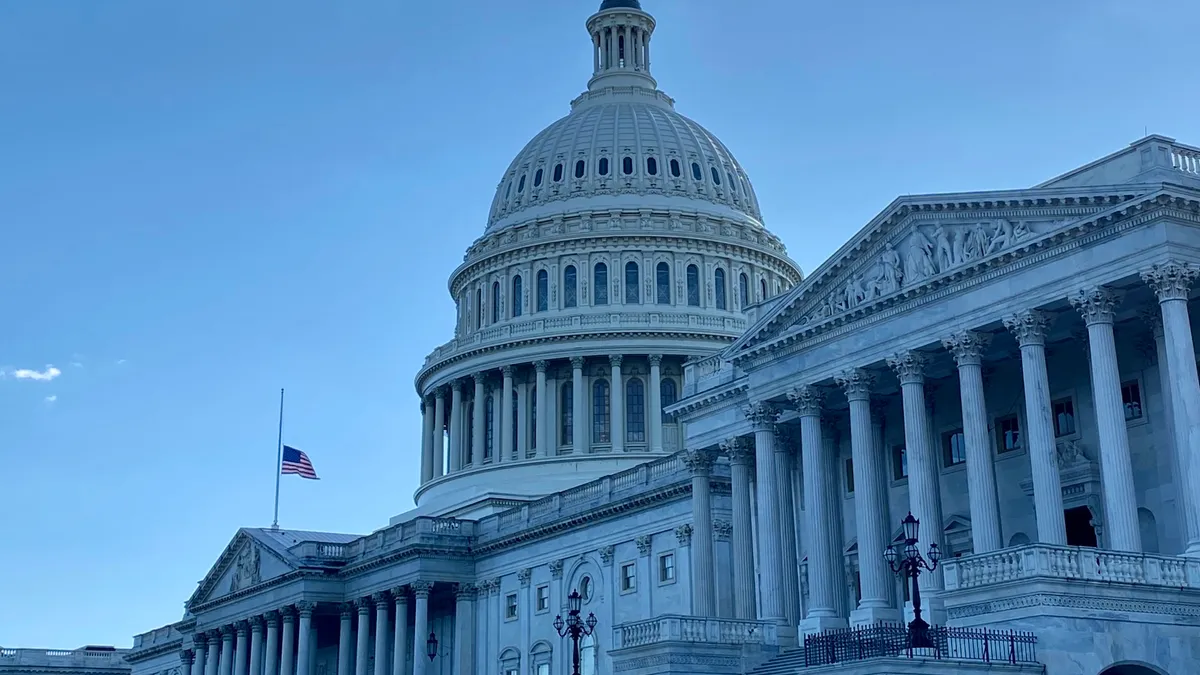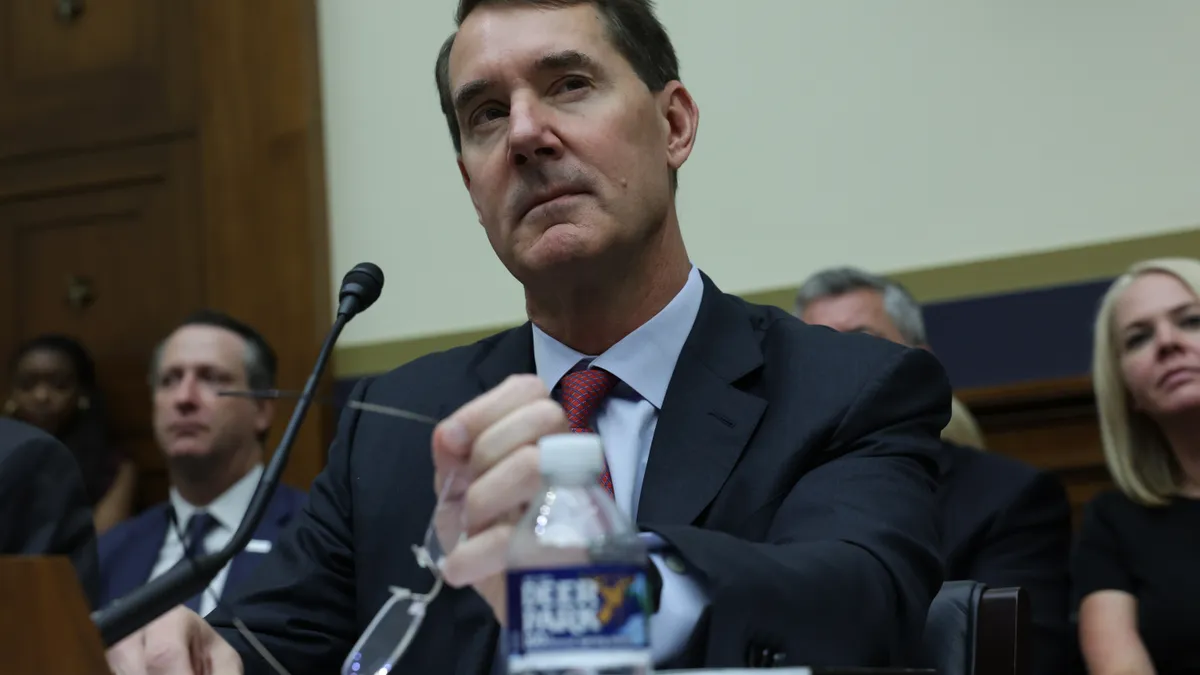A Thursday post to the Treasury Department’s blog aims to dispel "misinformation" surrounding a hotly debated proposal in Congress to force banks to report to the IRS inflows and outflows on accounts holding more than $600.
"Opponents have elevated the pernicious myth that banks will have to report all individual customers’ transactions to the IRS," Natasha Sarin, Treasury’s deputy assistant secretary for economic policy, wrote Thursday on the department’s website. "This is unequivocally false, and an incorrect representation of the proposals under consideration."
The data point the post seeks to clarify is that the measure wouldn’t require financial institutions to report individual transactions — rather, how much money flowed into or out of an account holding $600 or more over a given year.
Pushback over the $600 figure has prompted lawmakers to consider bumping the threshold higher — House Ways and Means Chairman Richard Neal, D-MA, and Senate Finance Committee Chairman Ron Wyden, D-OR, have targeted $10,000. Lawmakers are also considering exempting mortgage payments withdrawals, as well as direct deposits from payroll processors, from the total, Bloomberg reported.
The higher threshold, however, has failed to sway trade groups such as the American Bankers Association (ABA) and the Independent Community Bankers of America (ICBA), which were among 101 organizations that wrote Thursday to the majority and minority leaders of both chambers of Congress, assailing the legislation.
"While recent proposals suggest that increasing the de minimis threshold to $10,000 is less objectionable, this is a flawed assumption and will not significantly reduce the scale of this new IRS program," the groups wrote.
Republicans, meanwhile, have sought to galvanize everyday consumers around the principle that greater IRS access to personal data represents an invasion of privacy. In an op-ed published last week in the Lexington Herald-Leader, Senate Minority Leader Mitch McConnell, R-KY, pointed to a recent IRS data breach as evidence the agency shouldn’t be trusted with extra data.
The government’s authority to demand information on bank transfers greater than $10,000 "allows them to sniff out things like money laundering, terrorism or tax fraud," McConnell added.
"In effect, Washington liberals want to let the IRS leaf through Americans’ checking accounts as if everyone were a potential criminal or terrorist until proven otherwise," he wrote.
Some individual banks have encouraged their customers to voice their opposition to the measure by contacting House and Senate lawmakers.
"We work for our customers and our community, not the IRS," Midwest City, Oklahoma-based FNB Community Bank wrote in an Aug. 31 post that still sits atop its Facebook page. "Join us in telling Congress that proposed IRS bank account profiling is intrusive and indiscriminate for our customers." The post has been shared more than 73,000 times.
"We proudly join @ICBA and others in telling Congress that we serve our customers, not the IRS," Coeur D’Alene, Idaho-based Bankcda shared Sept. 30 on Twitter, accompanied by the hashtag #KeepMyBankingPrivate.
Whitewater, Wisconsin-based First Citizens State Bank, in a Facebook post, linked to an ABA landing page with the capacity to auto-generate a letter to Congress.
Rep. Lloyd Doggett, D-TX, who sits on the House Ways and Means Committee, conceded to Bloomberg last month that banks may have outmaneuvered Democrats in the messaging surrounding the data-reporting proposal.
Sarin’s post, then — and press appearances by better-known Treasury officials — may serve as a counterattack.
"The proposal involves no reporting of individual transactions of any individual," Treasury Secretary Janet Yellen told CBS News in an interview that aired Tuesday.
The legislation has been couched as a way to help the IRS collect more than $460 billion in unpaid taxes over 10 years by targeting high-income earners.
Sarin’s post seeks to reassure middle-class Americans that those who earn wages and are sent a W-2 form every year are not the target of the tax-gap measure. That segment, Sarin said, sees a 99% compliance rate on reporting wages to the IRS because the agency, the employer and the earner all receive the W-2.
That compliance rate, however, drops below 50% for high earners who accrue business or pass-through income that is not reported by a third party to the IRS, Sarin said. That, she added, is where the bill intends to make up the gap.
"This proposal has been seriously mischaracterized," Yellen told CBS News.





















